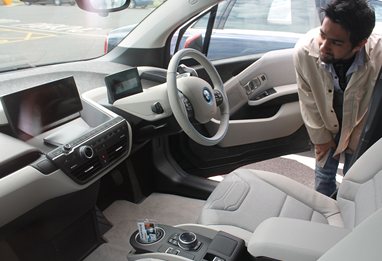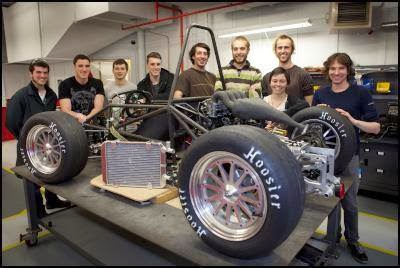This website uses cookies to enhance your user experience, please see how we use cookies for more information. By the end of this course you’ll be in an excellent position to become an automotive engineering professional. Complement the technical studies of your Engineering program with business and management courses by pursuing the five‑year Bachelor of Engineering and Management (Honours) program. Consistently rated as one of the five best Colleges of Engineering in the country, U-M offers top-ranked academics. Whether you are dreaming of a career in motorsport or want to work in the commercial automotive industry, our Automotive Engineering degree programmes give you the specialised knowledge and skills you need to become a professional engineer. Our former students are employed by automotive vehicle and system manufacturers around the globe. This provides a firm base of engineering principles, knowledge and basic skills and means you can change course at the end of the first year if you prefer.
This naturally only covers parts of the competencies needed to develop automotive vehicles. It’s why many of our graduates have gone on to start very successful careers in a wide variety of roles in the industry, in areas ranging from development or design and performance engineering to automotive marketing. We’ve built up excellent industrial links during the 50+ years that we’ve been offering engineering courses. Students undertake an individual research project in the area of automotive technology. This module is a Pass/Fail module so does not contribute to the classification of your degree. It’s useful to get student membership with IMechE as it provides opportunities for networking, discounted courses and access to careers resources. Others have continued their studies with a taught postgraduate MSc degree or an MPhil or PhD.
Gain an understanding of automotive ignition systems, the function and operation of a vehicle braking system, security, and the identification and repair of transmissions, drivelines and final drives. The Automotive courses at Loughborough were the first such courses in the UK and have established a national and international reputation for the quality of the courses and the graduates produced. The first year of the course provides a foundational grounding in engineering as well as introducing aspects of vehicle design. Demonstrate the ability to integrate knowledge from different branches, and handle complexity, and to understand applicable techniques and methods, their limitations and the non-technical implications of engineering practice. Apply new and emerging technologies related to the field of automotive engineering.
Participate in research or testing of computerized automotive applications, such as telemetrics, intelligent transportation systems, artificial intelligence, or automatic control. Throughout your career, you’ll need to keep up to date with new developments in technology and software packages.
In addition to lighter weight and significant improvements in efficiency, the new car employs plenty of technology and driver support. Teaching and lecturing at universities or colleges is a possibility if you have a Masters or PhD in mechanical or automotive engineering. In the Certificate in Applied Technology (Automotive Engineering) you learn to carry out repairs on engines, transmissions, brakes, steering and suspension, and fuel and electronic control systems. Describe basic legal and risk principles applicable to mechanical and automotive related situations, including health and safety. Engineering is a growth industry and currently there is a shortage of engineers. Core modules will give you a solid knowledge base in key areas of automotive engineering. Use traditional design methods and CAD software to undertake engineering design tasks.
